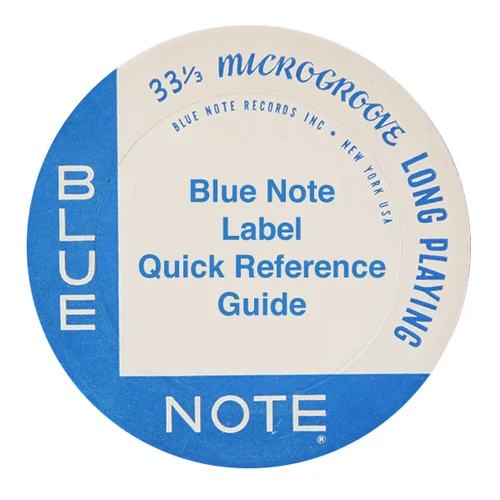Heavenly Hard Bop: Milt Jackson & Frank Wess - "Opus De Jazz"
/Milt Jackson & Frank Wess • Opus De Jazz • 1955 • Savoy Records
Recorded October 28, 1955 in New York City
The Selection:
The Tracks:
A1. Opus De Funk
A2. Opus Pocus
B1. You Leave Me Breathless
B2. Opus And Interlude
The Players:
Milt Jackson - Vibes
Frank Wess - Tenor Sax, Flute
Hank Jones - Piano
Eddie Jones - Bass
Kenny Clarke - Drums
The Record:
Original 1955 Opus De Jazz Cover
Here we have one of those "all-star" sessions from the 1950s that brought together a talented group of like-minded musicians - in this case a group who could lay down some outstanding hard bop tracks - to produce a quality record that could quickly be brought to stores and show off the roster of the Savoy label at the time. There are no shortage of these type of LPs out there, they would come to be known as "blowing sessions" and many are excellent, with a few reaching the status of classic recordings (The Sermon and All Night Long come to mind). Opus De Jazz was first released in 1955 with an alternate front cover that made no mention of the musicians involved, only of the instruments they played. In fact, the original title read as Opus De Jazz for Flute, Vibes, Piano, Bass, Drums. The second cover, released a year later, names the musicians (with a nod to the instrumentation now prominently on the back cover); why the sudden change is most likely lost to history, but perhaps Savoy realized crediting the musicians on the front would appeal more to the consumer flipping through the record racks.
Frank Wess and His Smokin' Flute
Milt Jackson with his trademark cool and inventive touch on the vibes is - as always - a delight to behold, but the real revelation for me here is the strong showing by Frank Wess. His delicate yet funky playing on the flute stands as a nice contrast to his smooth and confident tone on the tenor on the couple of tracks where he picks up his horn. I was more familiar with the name Frank Wess than I was with his playing - I've passed on a few of his Prestige LPs over the years, a mistake I won't make again if the opportunity presents itself - and I knew of his time spent playing with the Count Basie orchestra for much of the 1950s, but had never had the opportunity to give him the listening time he obviously deserves. A quick Wikipedia search says that Wess won the Downbeat critic's poll as the top jazz flautist from 1959 to 1964, which tells us that his talents certainly didn't go unnoticed at the time, even if he didn't produce quite enough records under his own name to leave a lasting impression to the modern day listener.
"Opus De Funk", the opening track on the album, is the real highlight here, with the musicians clearly energized by the possibilities of the Horace Silver composition. The nearly fourteen minute track allows for great soloing, first by Jackson, then Wess and finally by Hank Jones, a rotation that is decreasingly repeated another four times before the tune closes out with the theme once again (they start with five bars apiece, then four, then three, all the way down to one bar each). This is early hard bop jazz music at it's very best.
Jones and Kenny Clarke are obviously major talents in jazz and perform accordingly, I remain unfamiliar with the work of the bassist Eddie Jones, who I briefly thought was related to Hank Jones and his musical family (he's not, that would be the trumpeter Thad Jones and some drummer named Elvin). It turns out that Eddie Jones played with the Count Basie Orchestra at the same time as Wess, and so we can guess that Wess had something to do with Jones being invited to the recording session. Hank Jones was a favored partner of Jackson, appearing on many of his classic records from the late '50s and early '60s (a few years after Opus De Jazz, he would famously appear on Cannonball's Somethin' Else). Kenny Clarke had been the house drummer for the Savoy label (and an important figure in the evolution of jazz drumming), and he had been playing alongside Jackson in the Modern Jazz Quartet for many years, although 1955 would be his last year with the group as he was replaced by Connie Kay as the MJQ entered it's commercially popular phase.
The Vinyl:
Milt Jackson & Frank Wess - "Opus De Jazz" - Label - Vinyl LP
While this is must be considered a "second pressing" due to the cover, the bright red label (the same label as the original release) suggests it very likely came from the same pressing run, as the two covers were issued only a year apart. It is a glorious example of mid-1950s vintage jazz vinyl: heavy, deep groove and presenting itself with a wonderful depth of sound and separation of the musicians and their solos. It doesn't hurt that Rudy Van Gelder was the engineer for the album, his contributions to any recording session are well known and almost always beyond reproach. Another feature of this era of vintage vinyl shows itself as well, the vinyl visually grades at VG, but plays much better than that at VG+. These heavy pressings could take some wear and still sound great.
In the vinyl trail-off we have a combination of machine stamped and hand-etched markings. The first side has a machine stamped "MG 12036 A" followed by what is best described as an inverted block-letter "T". There are also stamped "X20", "A" and "1" markings on this side. The many markings of Side One conclude with Van Gelder making his presence known with a hand-etched "RVG". Side Two switches things up slightly, the matrix number is now a hand-etched "MG 12036 B-1", with the "X-20" etched as well. There is a stamped "B" present, and perhaps most strange is that on the second side trail-off the "RVG" is now machine stamped, standing in contrast to the first side. Oh well, vintage vinyl minutia for those that love such things, meaningless blather for those who don't.
An underrated and lesser-known LP like this isn't going to break the budget, I paid $15 for my copy at the local record shop. Perhaps a little more than the going rate online, but I couldn't resist picking up a VG+ copy of some vintage Savoy vinyl. I'm a sucker like that sometimes, although in this case the music falls right in line with my tastes for classic hard bop, with the added bonus of one of my faves - Milt Jackson - present on the vibes. Opus De Jazz is the perfect example of hard bop in it's early period, played by a group of musicians perfectly suited to setting it down on wax, not necessarily a "lost classic" but a record that would be right at home in a larger collection of modern jazz on the more popular jazz labels - Prestige, Riverside, Blue Note - that we are more often in search of when digging through the shelves.












